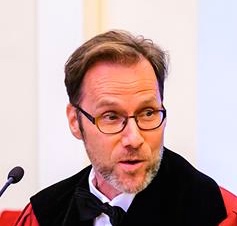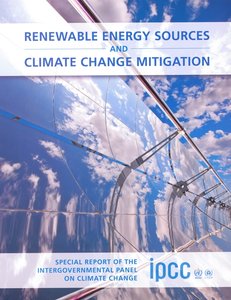Public capital is the aggregate body of government-owned assets that are used as a means for productivity. Such assets span a wide range including: large components such as highways, airports, roads, transit systems, and railways; local, municipal components such as public education, public hospitals, police and fire protection, prisons, and courts; and critical components including water and sewer systems, public electric and gas utilities, and telecommunications. Often, public capital is defined as government outlay, in terms of money, and as physical stock, in terms of infrastructure.
Ecological modernization is a school of thought in the social sciences that argues that the economy benefits from moves towards environmentalism. It has gained increasing attention among scholars and policymakers in the last several decades internationally. It is an analytical approach as well as a policy strategy and environmental discourse.
The Wuppertal Institute for Climate, Environment and Energy is a German research institution that explores and develops models, strategies and instruments to support sustainable development at local, national and international level. Sustainability research at the Wuppertal Institute focuses on ecology and its relation to economy and society. Special emphasis is put on analysing and supporting technological and social innovations that decouple prosperity of economic growth from the use of natural resources.

Carl Friedrich Freiherr von Weizsäcker was a German physicist and philosopher. He was the longest-living member of the team which performed nuclear research in Germany during the Second World War, under Werner Heisenberg's leadership. There is ongoing debate as to whether or not he and the other members of the team actively and willingly pursued the development of a nuclear bomb for Germany during this time.

Janez Potočnik is a Slovenian politician, he served as European Commissioner for Environment until 1 November 2014. He was formerly Slovenia's Minister for European Affairs. In November 2014, he became co-chair of the International Resource Panel (IRP)IRP, a forum of scientists and experts working on natural resources management.

A steady-state economy is an economy made up of a constant stock of physical wealth (capital) and a constant population size. In effect, such an economy does not grow in the course of time. The term usually refers to the national economy of a particular country, but it is also applicable to the economic system of a city, a region, or the entire world. Early in the history of economic thought, classical economist Adam Smith of the 18th century developed the concept of a stationary state of an economy: Smith believed that any national economy in the world would sooner or later settle in a final state of stationarity.
The (von) Weizsäcker family, which hails from the former Kingdom of Württemberg, has been prominent and influential over the span of several generations. Its members include a Prime Minister of the Kingdom of Württemberg, a President of Germany, a leading diplomat, a prominent environmental scientist and the physicist after whom the Bethe–Weizsäcker formula was named.
Ecotechnology – not to be confused with ecotechnics – is an applied science that seeks to fulfill human needs while causing minimal ecological disruption, by harnessing and manipulating natural forces to leverage their beneficial effects. Ecotechnology integrates two fields of study: the 'ecology of technics' and the 'technics of ecology,' requiring an understanding of the structures and processes of ecosystems and societies. All sustainable engineering that can reduce damage to ecosystems, adopt ecology as a fundamental basis, and ensure conservation of biodiversity and sustainable development may be considered as forms of ecotechnology.
In economics, structural change is a shift or change in the basic ways a market or economy functions or operates.
Factor Ten is a social and economic policy program developed by the Factor Ten institute with the stated goal of reducing human resource turnover by 90% on a global scale within the next 30 to 50 years.
Resource productivity is the quantity of good or service (outcome) that is obtained through the expenditure of unit resource. This can be expressed in monetary terms as the monetary yield per unit resource.
The eco-social market economy (ESME), also known as the socio-ecological market economy (SEME) or social and ecological market economy, aims at balancing free market economics, the strive for social fairness and the sustainable use and protection of the natural resources. It was developed by Austrian politician Josef Riegler during the 1980s, expanding on the original concept of the social market economy, an economic model first advocated by Konrad Adenauer, and is considered the economic format which the majority of nations in Europe follow.
Material input per unit of service (MIPS) is an economic concept, originally developed at the Wuppertal Institute, Germany in the 1990s. The MIPS concept can be used to measure eco-efficiency of a product or service and applied in all scales from a single product to complex systems. The calculation takes into account materials required to produce a product or service. The total material input (MI) is divided by the number of service units (S). For example, in case of a passenger car, the number of service units is the total number of passenger kilometres during the whole life span of the vehicle. The lower the material input per kilometre, the more eco-efficient is the vehicle. The whole life-cycle of a product or service is measured when MIPS values are calculated. This allows comparisons of resource consumption of different solutions to produce the same service. When a single product is examined, the MIPS calculations reveal the magnitude of resource use along the life-cycle and help to focus efforts on the most significant phases to reduce environmental burden of the product.
In economic and environmental fields, decoupling refers to an economy that would be able to grow without corresponding increases in environmental pressure. In many economies, increasing production (GDP) raises pressure on the environment. An economy that would be able to sustain economic growth without having a negative impact on the environment would be said to be decoupled.

The World Resources Forum (WRF) is a non-profit organisation for sharing knowledge about the economic, political, social and environmental implications of global resource use. WRF promotes resource productivity among researchers, policymakers, business, NGOs and the public. In addition to organizing international and regional conferences, the WRF Secretariat coordinates multistakeholder dialogue projects, amongst others the Sustainable Recycling Initiative (SRI) as well as the H2020 project Towards a World Forum on Raw Materials (FORAM). WRF serves as a platform fostering knowledge exchange between academics, politicians, research-oriented practitioners, entrepreneurs, consultants and other professionals in the areas of the Sustainable Development Goals (SDGS)

Raimund Bleischwitz is a German academic and environmental and resource economics scholar. He is a Professor at University College London where he holds the position of Chair in Sustainable Global Resources, and the Director of The Bartlett School of Environment Energy & Resources. He is a recognized expert and influential policy adviser in topics of resource efficiency, circular economy, resource nexus, raw material conflicts, eco-innovation, incentive systems and policies, industry and sustainability.
Marina Fischer-Kowalski is an Austrian sociologist and social ecologist, currently teaching at the University of Natural Resources and Life Sciences, Vienna, the Alpen-Adria-Universität Klagenfurt and the University of Vienna. She is known for founding the Vienna School of Social Ecology and her pioneering work on the widely used metric for material and energy flows to complement economic accounting. Fischer-Kowalski works on socio-environmental change, sustainable development and the Anthropocene.









